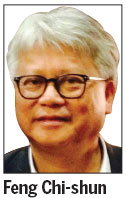No benefits from medical protectionism
Updated: 2014-01-06 06:40
By Feng Chi-shun(HK Edition)
|
|||||||
The column by C.K. Yeung, "Government must break Hong Kong doctors' protectionist barrier", in the South China Morning Post on Dec 16, 2013 concerning shortages of doctors in Hong Kong should be required reading for all our medical leaders.
In his well-researched and insightful article, Yeung blames the powerful medical lobby for curtailing overseas-educated doctors from coming here to work, hence hindering relief measures to alleviate the shortage of doctors in our public hospitals.
Singapore does not require foreign medical doctors to take an exam, as long as they are graduates of medical schools that their medical council approves. United Kingdom tests the foreign doctors, but the pass rate is way over 50 percent, while the pass rate in Hong Kong is around 10 percent.
There is really no justification for admitting, on average, only 11 overseas doctors a year to come here to practice, while Singapore, which is similar to Hong Kong in medical standards, admits more than 400.
Around the same time Yeung's article was published, the government invited the officials of the Hong Kong Medical Association (HKMA) to attend the 2014 Policy Address Consultation Session, to give their opinions on healthcare issues.

The HKMA officials drew up a list of recommendations, and published them in the HKMA monthly magazine. Those recommendations looked very familiar to me; they must have been the same ones proposed by them last year, and the year before. I shall summarize their recommendations as follows:
1) To reform the Hospital Authority (HA), they advised the HA administrators to restrict their areas of service to dire emergencies, poor patients, complicated and difficult cases, and training of healthcare professionals.
2) Because of the long wait for elective surgeries in HA hospitals, the government started a pilot scheme in which patients waiting for surgery received a subsidy if they opted to go to private surgeons instead of waiting. The HKMA officials protested that the subsidy was too low for the scheme to be effective.
3) They recommended tax deductions for citizens who paid for health insurance. As for the government proposed Health Protection Scheme, HKMA predicted "The scheme is doomed to failure unless there is proper gate-keeping at the primary care level."
4) They pointed out the severe shortage of private hospital beds, and complained about the rental increases of clinics, especially those in the LINK shopping centers. They urged the government to increase the supply of land for private healthcare facilities.
5) They asked the government to give financial subsidies to patients who require expensive drugs and other medical supplies, and broaden the free vaccination program to include all preventable diseases, and to cover all eligible citizens.
All the above recommendations ostensibly are meant to improve healthcare for our citizens, but are suspiciously self-serving. All of them will lead to generating more business for the private doctors. If the services of HA are restricted, more people who need elective medical and surgical care will have to go to private doctors, as long as they can afford the fees. If the subsidy for patients in the pilot scheme increases, who will get the money? If more citizens buy medical insurance because of tax breaks, who will have more business? And who will be the main beneficiaries of a rent reduction, and increase in private hospital beds? Who would be responsible for administrating the government-sponsored vaccines, and will there be a build-in surcharge?
Conspicuously absent in their list of recommendations is how to deal with the shortage of doctors in public hospitals, which, in my opinion, is the most urgent medical problem facing our city. To paraphrase Yeung, we have first-class quality, but third-world accessibility in our public healthcare system, considering the waiting time for elective surgeries in our public hospitals is measured in years.
Yeung accuses Hong Kong doctors of practicing medical hegemony and building a protectionist barrier. Judging from HKMA officials' manifesto, and what they considered most important in our healthcare delivery; they are doing a job in affirming those accusations.
The author was a consultant pathologist for the local government and St. Paul's Hospital before his recent retirement. He was a lecturer at the Medical Faculty of the Chinese University of Hong Kong and a diplomate of the American Board of Pathologists.
(HK Edition 01/06/2014 page9)